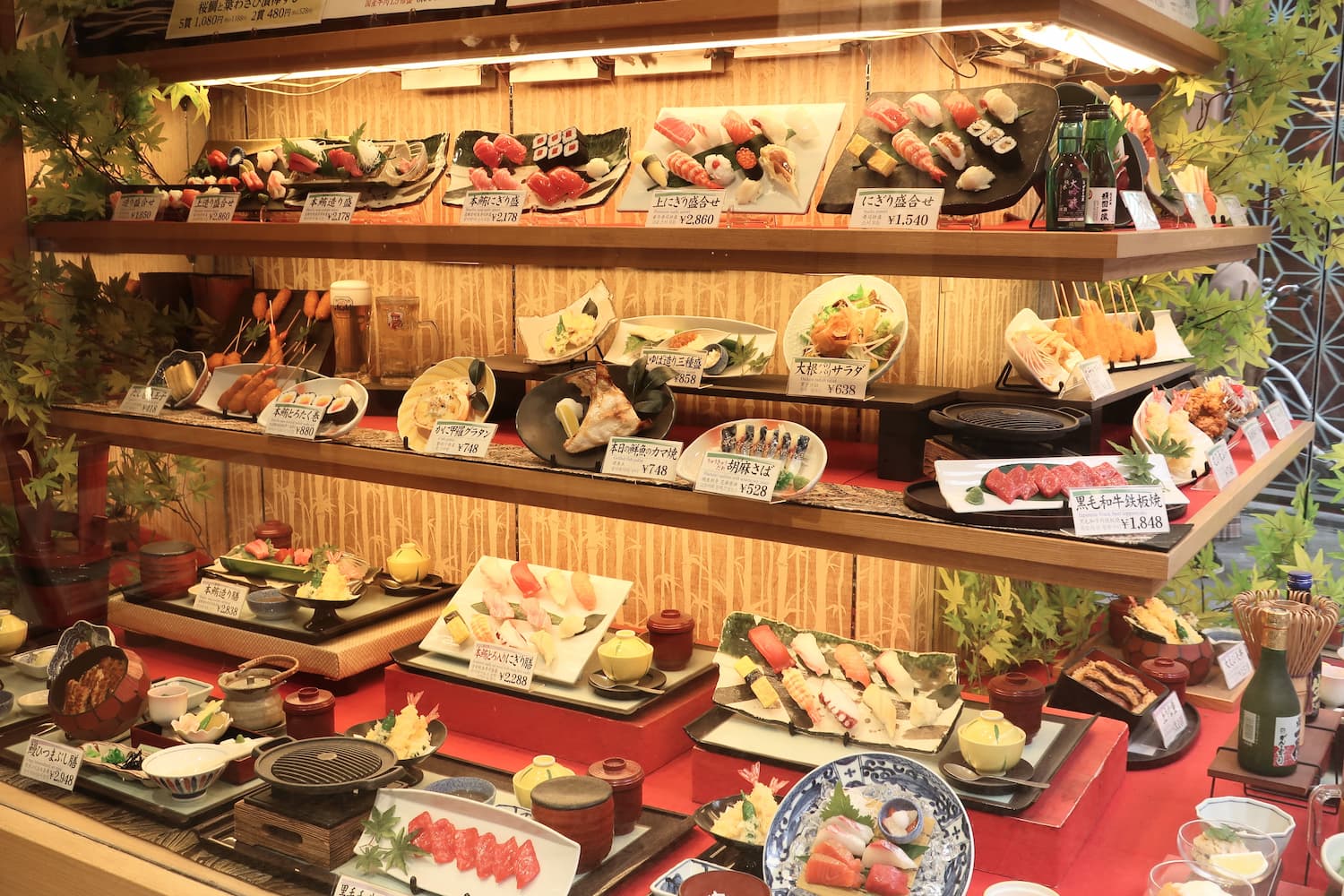Discover Gifu Through Its Unique and Delicious Regional Cuisine
If you’re planning a trip to Japan, don’t miss the chance to explore Gifu Prefecture. Famous for the historic villages of Shirakawa-go (a UNESCO World Heritage site) and the beautifully preserved town of Takayama, Gifu is a place where traditional Japanese culture still thrives.
One of the best ways to experience that culture is through food—and Gifu boasts many dishes that are truly local, found nowhere else in the country. In this article, we’ll introduce seven unique local dishes that you shouldn’t miss during your visit to Gifu.
- Keichan – Grilled Chicken with Rich Miso Sauce
- Goheimochi – A Tasty Grilled Rice Snack with Sweet Miso
- Takayama Ramen – Light, Old-Fashioned Soy Sauce Ramen
- Mizu Manju – A Cool and Elegant Summer Sweet
- Tsukemono Steak – A Clever Dish Born from Zero-Waste Culture
- Kuri Kinton – A Pure and Elegant Chestnut Delight
- Hoba Sushi – Mountain Flavors Wrapped in Magnolia Leaves
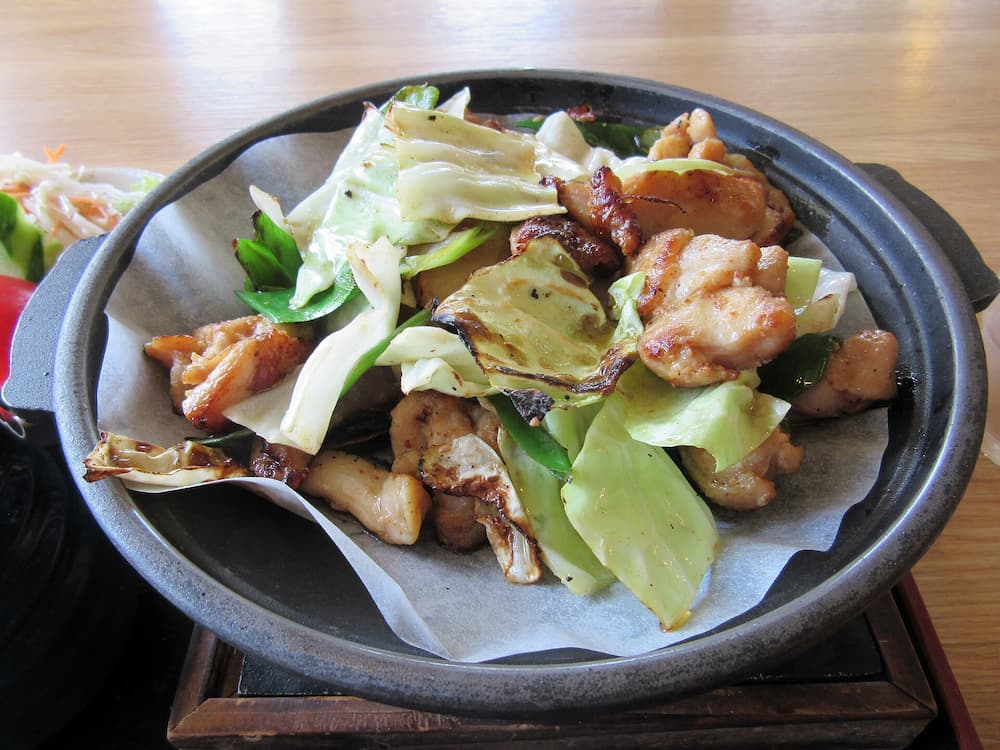
Keichan – Grilled Chicken with Rich Miso Sauce
Keichan is a beloved soul food from the Hida and Oku-Mino regions of northern Gifu. It’s a stir-fried chicken dish made by marinating chicken (usually thigh meat) in a miso or soy-based sauce, then cooking it on a hot iron plate along with cabbage and other vegetables.
What makes Keichan special is how it’s served sizzling hot, straight from the grill. It’s perfect with rice or alongside a drink. This dish is rarely found outside of Gifu, so make sure to seek it out while you’re there.
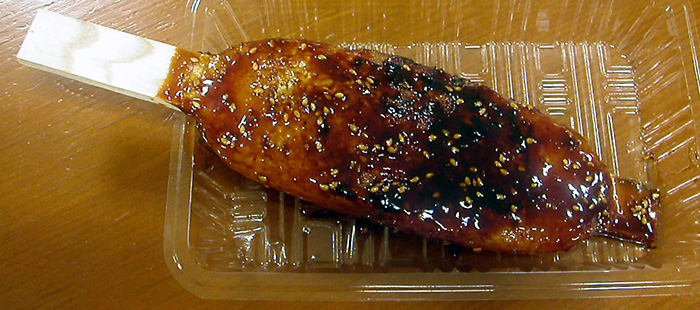
Goheimochi – A Tasty Grilled Rice Snack with Sweet Miso
Goheimochi is a traditional snack from the mountainous areas of Gifu. Despite the name “mochi,” it’s not the typical sticky rice cake. Instead, it’s made by mashing cooked rice, forming it into flat oval shapes, and grilling it with a sweet and savory miso glaze.
It’s often sold at festivals and outdoor events, making it a casual and fun street food. It offers a great way to sample a local specialty without needing to sit down in a restaurant.
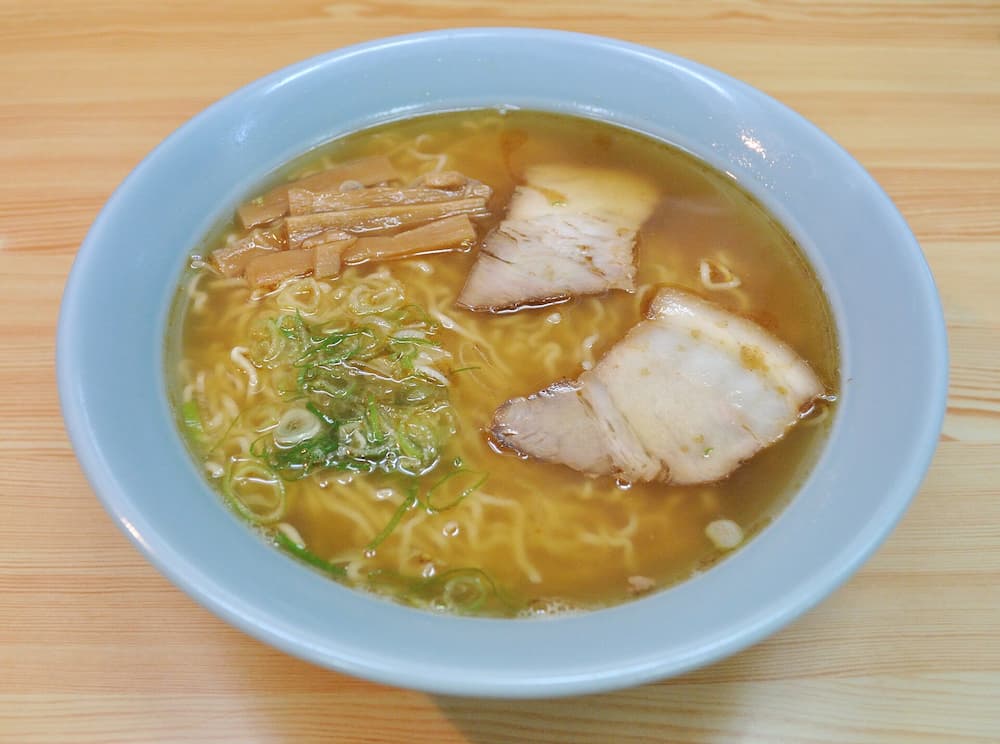
Takayama Ramen – Light, Old-Fashioned Soy Sauce Ramen
Takayama Ramen is a local favorite in the historic town of Takayama. Unlike modern ramen, which can be rich and heavy, this version features a clear chicken-based soy sauce broth and thin curly noodles that absorb the soup beautifully.
With its light and clean flavor, Takayama Ramen is ideal for those who prefer a less greasy bowl—or as a comforting meal after a night out.
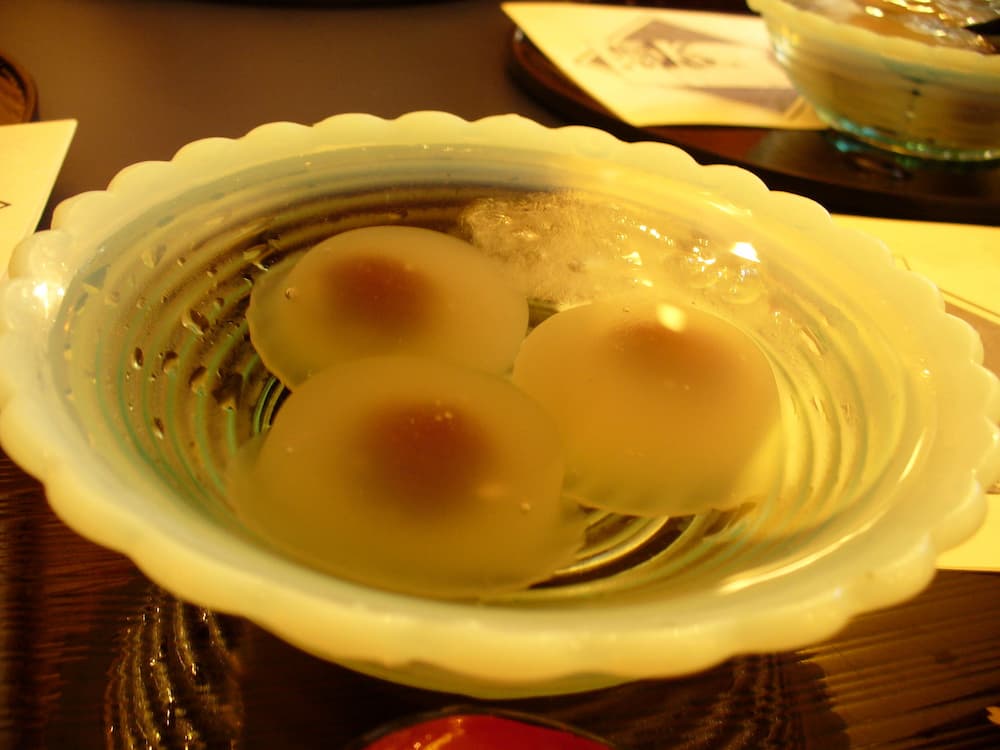
Mizu Manju – A Cool and Elegant Summer Sweet
Mizu Manju is a refreshing Japanese dessert from Ōgaki in western Gifu. Unlike traditional manju made with wheat flour, this summer version uses translucent kuzu or warabi starch to encase sweet red bean paste, giving it a jelly-like texture and a beautiful, glassy appearance.
Especially popular during Japan’s humid summers, Mizu Manju is a cool, light treat that soothes both the body and the eyes.
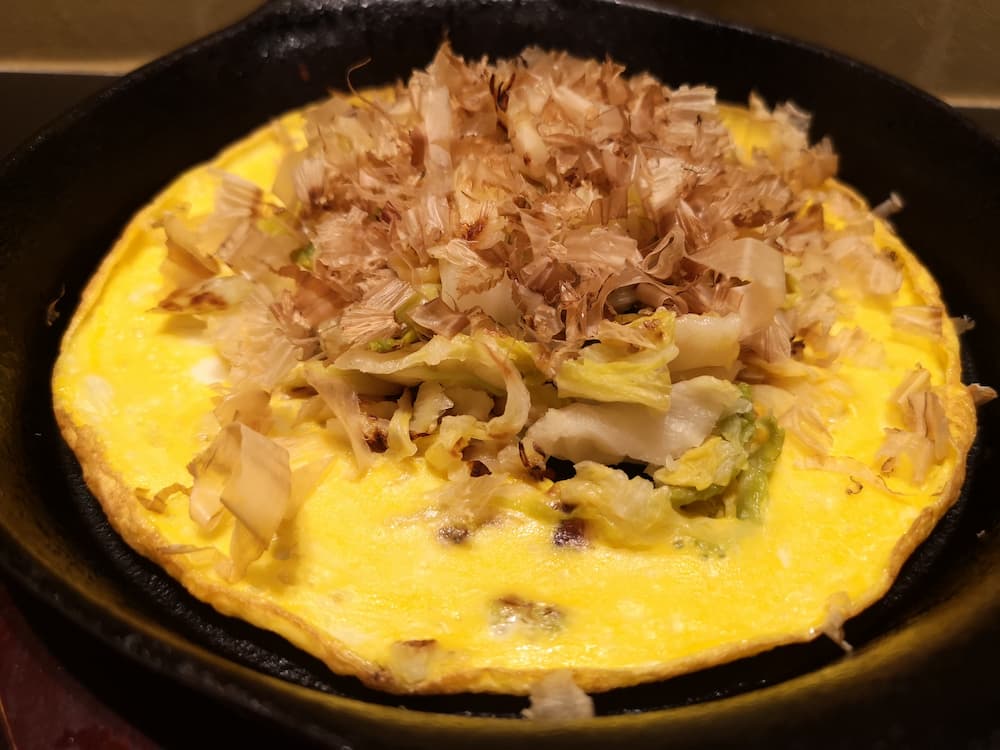
Tsukemono Steak – A Clever Dish Born from Zero-Waste Culture
Despite its name, this “steak” contains no meat. Pickled Vegetable Steak (Tsukemono Steak) is a creative dish from the Hida region that revives over-fermented pickled cabbage by pan-frying it and topping it with a beaten egg.
Originally a humble home-cooked dish, it’s now often served in izakayas (Japanese pubs) and pairs perfectly with alcohol. It’s a tasty example of how traditional Japanese food culture avoids waste and makes the most of every ingredient.
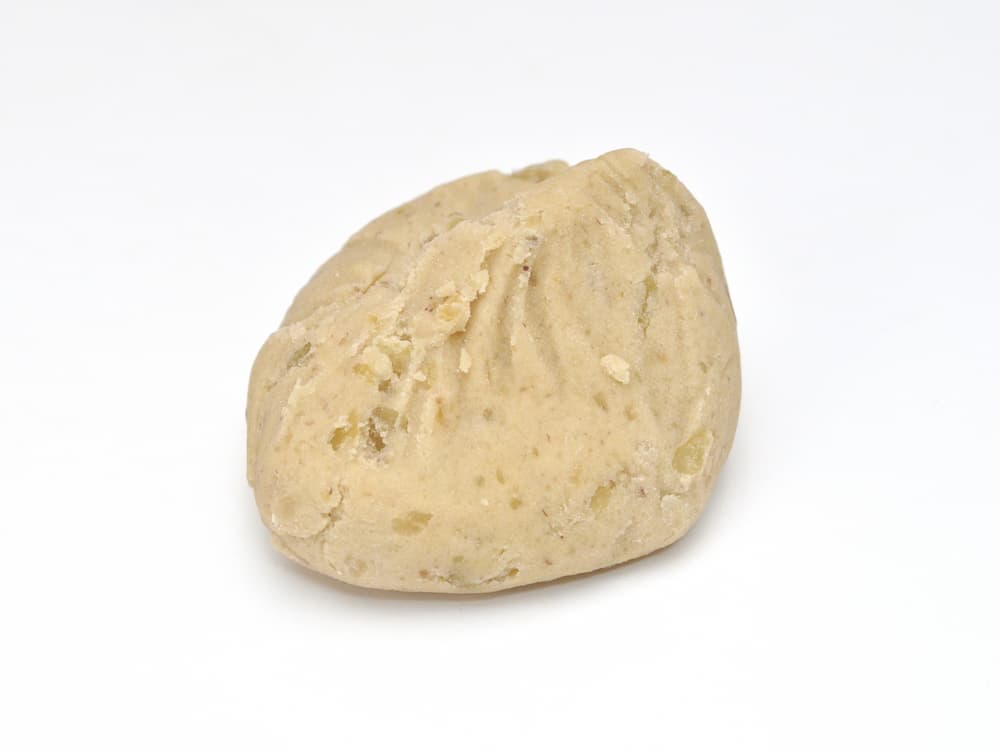
Kuri Kinton – A Pure and Elegant Chestnut Delight
Kuri Kinton is a luxurious sweet made from steamed chestnuts and sugar, shaped into small dumplings. This treat is famous in the towns of Nakatsugawa and Ena in eastern Gifu, especially during autumn when chestnuts are in season.
The charm of Kuri Kinton lies in its simplicity—no additives or preservatives, just the natural taste of chestnuts. Because high-quality versions are only made in the fall, it’s a limited-time delicacy worth trying if you visit during that season.
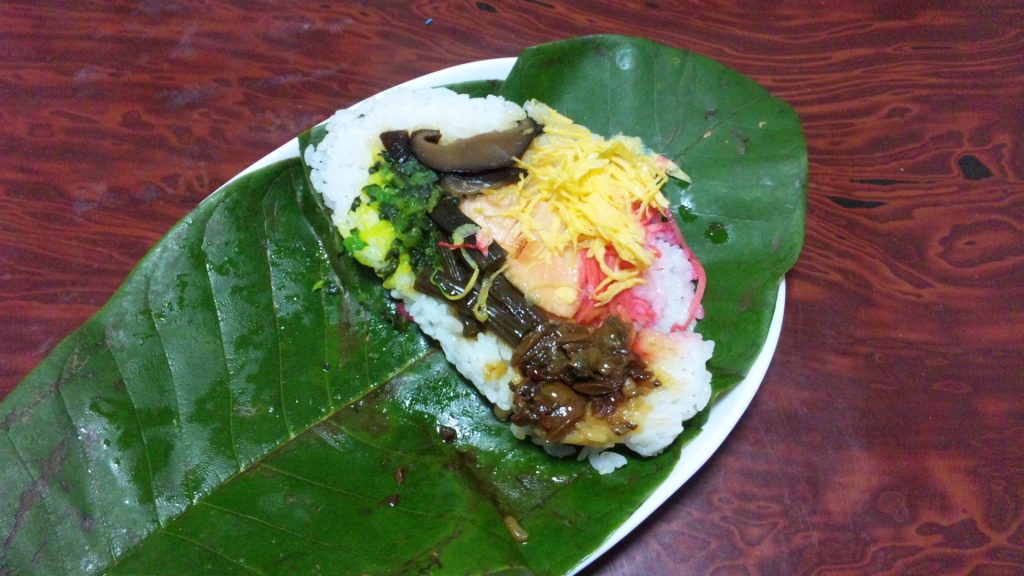
Hoba Sushi – Mountain Flavors Wrapped in Magnolia Leaves
Hoba Sushi is a traditional type of sushi from the Hida and Tōnō regions of Gifu. Unlike the sushi most travelers are familiar with, this dish involves pressing seasoned rice with local toppings such as thin omelet, mountain vegetables (sansai), and trout onto a magnolia leaf, which acts as a natural wrapper and preservative.
The leaf imparts a subtle aroma and helps keep the sushi fresh—an ancient, natural technique unique to this region. Hoba Sushi is a wonderful way to taste Gifu’s rich mountain culture.
